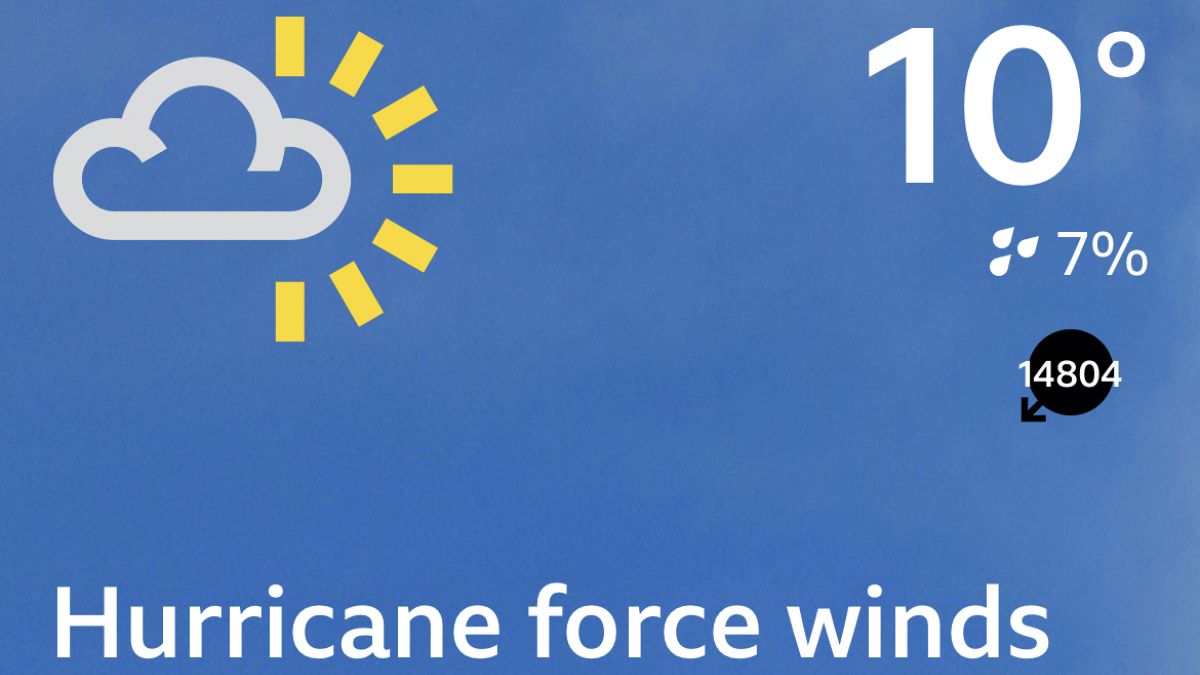A glitch in the BBC weather app caused widespread panic across the UK as absurd forecasts of extreme winds and temperatures became the norm. From 14,408 mph winds in Maidenhead to scorching temperatures of 404C in Nottingham, users were left scratching their heads at the outrageous predictions. The issue wasn’t limited to the UK, as users worldwide reported similar problems with the app. Even London’s Oxford Street was said to be experiencing hurricane-force winds of nearly 15,000mph. The BBC quickly issued an apology, blaming the inaccurate forecasts on a technical glitch from a third-party supplier.
In the midst of the weather app chaos, Hurricane Milton was wreaking havoc on the southeastern United States. As the category 3 storm made landfall, mass evacuations were underway in Florida and the surrounding areas. The situation was made even more dire as 2.6 million people were left without power, while deadly tornadoes ravaged the Gulf Coast. The juxtaposition of the real-life natural disaster with the exaggerated predictions of the BBC weather app only added to the confusion and concern among users.
Despite the seriousness of the situation, many users couldn’t help but find humor in the wildly exaggerated forecasts. Social media was abuzz with jokes and memes about the extreme weather predictions, with some users taking the opportunity to poke fun at the BBC’s technical mishap. However, the BBC was quick to address the issue, publicly apologizing for the inaccurate forecasts and reassuring users that they were working with their supplier to fix the problem as soon as possible. The timing of the glitch couldn’t have been worse, with Hurricane Milton causing real devastation in the US.
As the BBC worked to resolve the issue with their weather app, users were left wondering about the reliability of the forecasts they had come to depend on. With weather apps playing an increasingly important role in people’s daily lives, the glitch served as a stark reminder of the potential pitfalls of relying too heavily on technology. While the inaccurate forecasts were ultimately harmless, they highlighted the importance of accurate and reliable weather information, particularly in the face of real-life natural disasters like Hurricane Milton. The incident also raised questions about the role of third-party suppliers in providing essential services like weather forecasting.
In the aftermath of the weather app glitch, the BBC weather team worked tirelessly to correct the inaccurate forecasts and restore user confidence in their app. The incident served as a learning experience for the BBC and their third-party supplier, prompting them to review their systems and processes to prevent similar issues from occurring in the future. As users around the world continued to rely on the BBC weather app for up-to-date forecasts, the incident underscored the need for transparency, accountability, and reliability in the delivery of essential services like weather forecasting. Despite the momentary chaos caused by the glitch, the BBC weather app ultimately emerged stronger and more resilient, ready to provide users with accurate and trustworthy weather information when they need it most.











